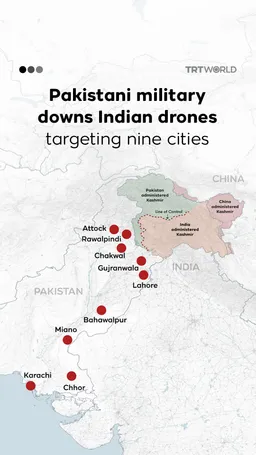The Gaza government has warned of the imminent return of famine to Gaza due to Israel's closure of border crossings to humanitarian and medical aid.
In a statement on Friday, the government’s media office said that “today marks the 13th day of the Israeli occupation's crime of preventing aid and tightening the siege by closing the Gaza crossings.”
“The consequences of this crime on the humanitarian situation are clear, with the indicators of famine and food insecurity unmistakable,” it added.
The government reported that “around 80 percent of Palestinians have lost access to food, with charity kitchens halting their operations and the suspension of aid distribution from humanitarian organisations due to the lack of food and basic supplies in the markets.”
Additionally, Gaza's government confirmed that “around 25 percent of the bakeries in the region have ceased operations, affecting the supply of bread to citizens.”
It warned that more bakeries may stop production due to fuel shortages.
It highlighted that 90 percent of Gaza’s population no longer has access to water, owing to a critical shortage of drinking water caused by the withholding of fuel from operating wells and desalination stations.
Gaza's government added that the closure of crossings has also “exacerbated the suffering of 150,000 chronic patients and injured individuals who can no longer access essential medications or medical supplies.”

According to UN and Israeli government data, food and aid deliveries sank to their lowest for 11 months in September.
Devastating humanitarian crisis
The government’s media office indicated that the clearing of roads and removal of rubble and waste in most municipalities has halted, as authorities are using the available fuel to operate water wells, warning of catastrophic environmental and health impacts as temperatures rise.
The building of new refugee camps has also been delayed due to fuel shortages, and the supply of tents for displaced families has been significantly affected, it added.
Additionally, Palestinians have returned to using firewood instead of cooking gas, a practice that has severe health and environmental consequences, contributing to the rise in respiratory illnesses, according to the statement.
The Gaza government held “Israel and its Prime Minister Benjamin Netanyahu responsible for the deteriorating humanitarian conditions in Gaza.”
It called on Arab and Islamic countries and the international community to “take action to break the siege on Gaza, allow the entry of humanitarian aid, and hold Israeli war criminals accountable.”
More than 48,500 people have been killed, mostly women and children, in a brutal Israeli war on Gaza since October 2023. The onslaught was paused under the ceasefire and prisoner swap deal, which took hold in January.
Last November, the International Criminal Court issued arrest warrants for Netanyahu and his former Defence Minister Yoav Gallant for war crimes and crimes against humanity in Gaza.
Israel also faces a genocide case at the International Court of Justice for its war on the enclave.















